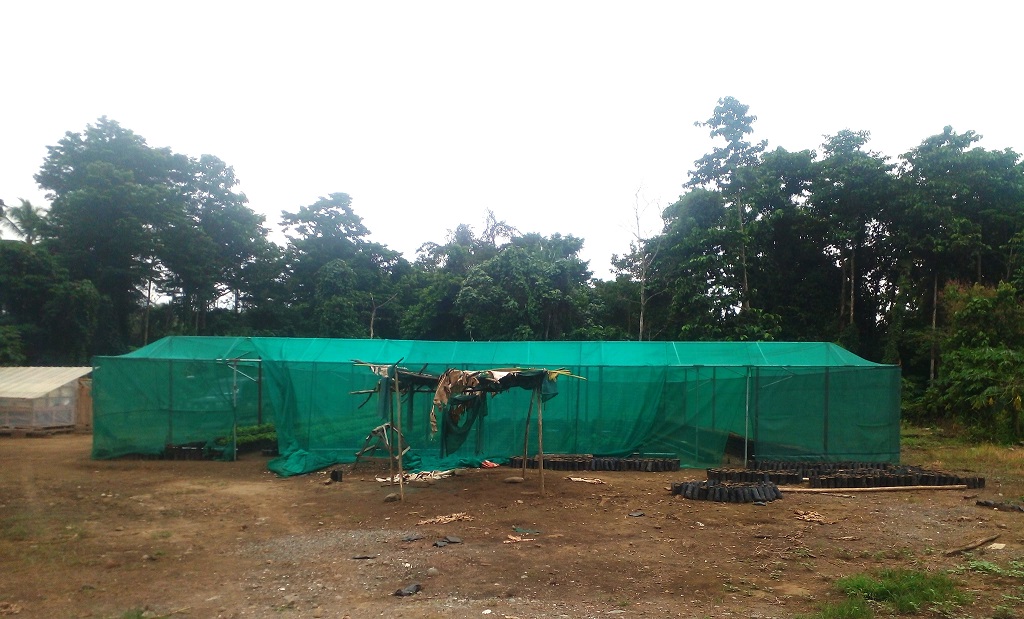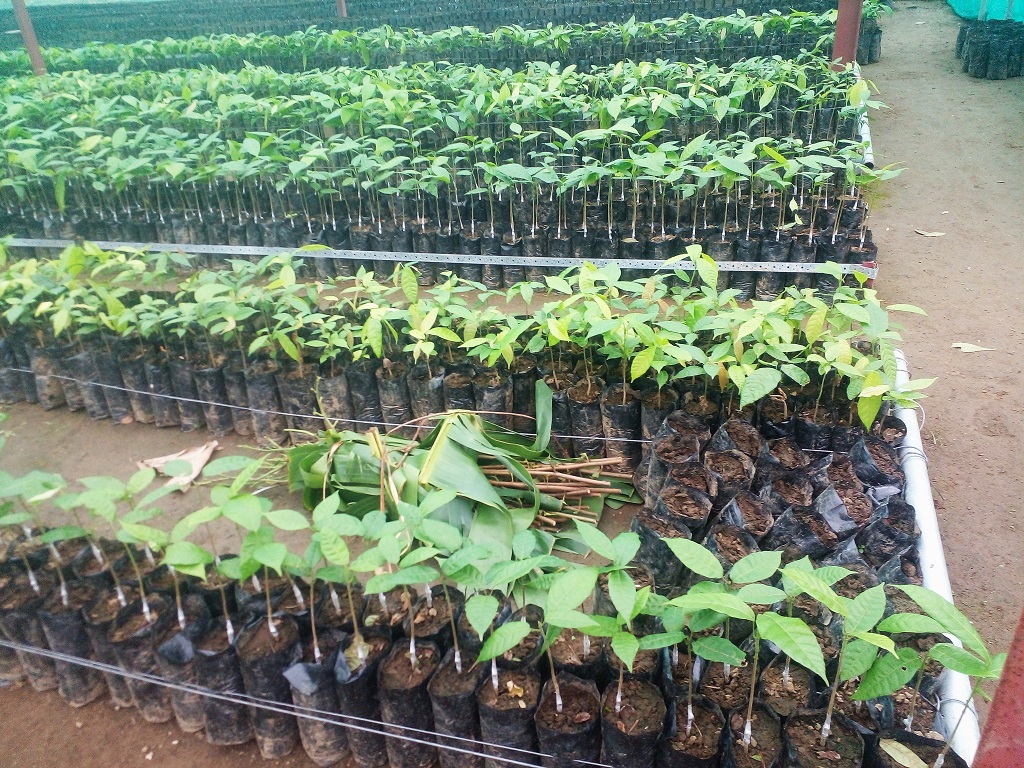Brave Chairman Leads as Strong Advocate for the Usino Cocoa Project
“The cooperative’s initial objective is to create healthy wealth in people, especially children and women in our community. This means that whatever they earn must enable them to improve their lives beyond the poverty line”, says Henry.
Henry is the Chairman of the Kou Cocoa Cooperative Limited partnering with the ANCP Climate Smart and Inclusive Cocoa project in the Usino–Bundi district of Madang Province, Papua New Guinea.
He says that the project has inspired a major behavior change in how farmers take care of their cocoa blocks, adding that, “the cacao tree was not the problem, the problem was with the people farming it because they lacked skills and tools that would enable them to have healthy and productive cacao trees”.
Henry adds that the project was initiated at a crucial time because there is a real need for knowledge sharing on climate-smart farming skills.
“The key is to educate the farmer on how to care for his cacao tree and become an asset in his cocoa block, the monetary value that comes after a good harvest is a bonus”, he says.
From his observation, Henry says that there are people who never paid much attention to their cocoa block in the past but that has significantly changed because we intervened in his community.
Our intervention would not have been possible if not for the much–needed funding support from the Australian NGO Cooperation Program (ANCP) and the continued technical expertise of the various Government Departments in the province such as the Cocoa Board of Papua New Guinea in Madang Province, the Department of Commerce and the Department of Agriculture and Livestock.
“I came here in 2015, and back then no one was selling cocoa except two people, but so far, (unofficially) we have sold over 500 bags from late 2023 to now,”, adds Henry.
He says that such is a clear indication that farmers have understood the skills training provided through the project.
“This project has helped so much and we have to thank World Vision for that”, he adds. Henry stressed that the behaviors of farmers in the cooperative have changed and most importantly it is not only centered around farming cocoa but extends to other aspects of their lives.
“There are other components to the project apart from cocoa farming and that is GEDSI and other various components. As chairman, I have observed that there is change in the community because of this”, he says.
Project lead in Madang, Dehaan Lapawe adds that the 7 climate smart elements taught to farmers are agroforestry, canopy cover, contour; terrace and drainage, intercropping, organic fertiliser, cover crops, as well as block and tree sanitary.
More so, the Cooperative has also undertaken another vital component of the project, which is the Savings for Transformation (S4T). The S4T initiative refers to a financial strategy where beneficiaries save a portion of their income or resources to create positive transformations within their community or to have extra income for times of emergency.

“We have established seven S4T groups in the cooperative, five of which are active and we need some help with the remaining two. And it is good that we have Benjamin (S4T Project officer) around to help with that”, he says.
The cooperative aims to encourage all registered farmers to establish S4T groups, this will enable farmers to save money from the looming - positive mass cocoa production and sale which in turn will inspire the expected improved livelihoods for the farmers and their families, especially the children.
“Reflecting on years one and two up till now – as we enter into year 3 of the project. I would like to thank World Vision because this project has introduced the idea of commercial farming to a group of people who only knew and were still practicing traditional farming”, says Henry.
He says the cooperative is now looking at ways to create a strong domestic market for cocoa that will enable them to enter into much bigger markets for the benefit of the farmers.
Mr. Lapawe adds that the project aims to help farmers sell as a collective through their cooperatives, this will enable them to negotiate better income and have a voice to make a difference in the cocoa value chain as opposed to individual or smaller groups selling at low prices. Further adding that, “The Cooperatives are seen as strategic partners in the cocoa value chain”.
Henry believes the cooperative can achieve its goals but they have to work in close partnership with World Vision, to keep to the time of the project, and provide impactful reports to help both the cooperative and World Vision as the lead implementer of the project.
 ” The onus is now on us, the cooperative to train and educate our farmers on a business management level, to work within a given timeframe, and to work to create quality and quantity so we can expect a high-yielding return in revenue”, he adds.
” The onus is now on us, the cooperative to train and educate our farmers on a business management level, to work within a given timeframe, and to work to create quality and quantity so we can expect a high-yielding return in revenue”, he adds.
Henry is aware that projects face challenges and although the initial years were a bit chaotic, he has assured that all of that has not been a waste of time as in this third year, farmers have fully grasped the skills that have been shared.
“The farmers have now understood the core of this project and I am certain that there are good things in store for us in the future, both for us the Kou Cooperative, and our sister cooperative, the Gigaso Cooperative”, he says.
Mr. Lapawe adds that Cocoa farmers hold the key to the change they desire. He further emphasises, “They own the land, cocoa trees, time, tools, and labor. They need to adopt climate-smart farming practices, quality bean processing, and joint house decision-making on farms and finance to see dreams become realities.”
He concludes that the future cocoa farmers’ desire and hope for is possible with savings using the S4T approach.
Although visually impaired, Henry is a staunch believer in the project as he leads the Kou Cooperative with inspiration and action.
“I am one of them, to go into my block to prune, clean, and bud my cocoa plants so yes, I am farming as well. A visually impaired person farming cocoa”, Henry ends with a smile.